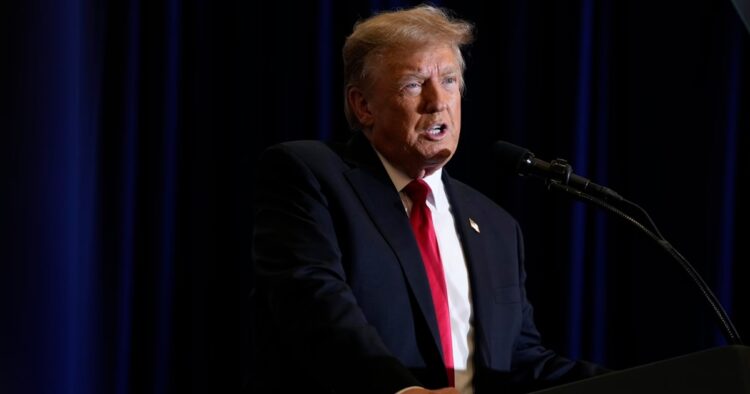In a significant legal development, a federal appeals court ruled on Friday that the lawsuit filed by a group of U.S. Capitol Police officers against former President Donald Trump can proceed. The officers accuse Trump of inciting the violent mob that attacked the U.S. Capitol on January 6, 2021, causing injuries to law enforcement personnel.
Trump’s claim of absolute immunity from civil lawsuits was rejected by the U.S. Court of Appeals for the District of Columbia Circuit. The court’s decision was based on a similar case earlier this month, where Capitol Police officers and House Democrats sued Trump. The D.C. Circuit upheld the lower court’s ruling, stating that Trump is not shielded from civil liability as his alleged actions were not part of his official presidential duties.
The three-judge panel in the recent case found Trump’s immunity argument to be insufficient, stating that the cases are “indistinguishable.” The judges emphasized that Trump’s actions on matters of public concern do not inherently connect to the essential distinction between official and unofficial acts.
Background and Legal Basis of the Lawsuit
The lawsuit, filed in August 2021 by seven Capitol Police officers who were on duty during the Capitol attack, alleges that the officers faced physical and verbal assaults from rioters acting on Trump’s “unlawful actions.” Seeking civil damages for injuries and trauma resulting from the attack, the officers also sued other defendants, including far-right extremist groups and Trump ally Roger Stone.
Former President Trump attempted to have the case dismissed, claiming absolute immunity from being sued for his alleged acts. However, U.S. District Judge Amit Mehta denied Trump’s motion in January, allowing the case to proceed. Judge Mehta’s reasoning aligned with a previous case involving Democratic lawmakers and two police officers, stating that Trump is not entitled to broad immunity for the events of January 6.
Mehta cited Trump’s speech outside the White House before the Capitol was stormed, where he urged supporters to “fight like hell” and “stop the steal”. The judge determined that the speech was not part of the president’s official duties but rather “an implicit call for imminent violence or lawlessness” not protected by presidential immunity or the First Amendment.
Implications and Trump’s Legal Options
The D.C. Circuit agreed with Judge Mehta’s ruling, rejecting Trump’s argument that his actions on January 6 were part of an official function of the presidency. The court emphasized that a president’s campaign for re-election is not an official presidential act, and campaigning is not an official act of the office.
While Trump has the option to seek a review of the unfavorable rulings from the full D.C. Circuit or the U.S. Supreme Court, the advancement of the lawsuit marks a significant legal challenge for the former president in relation to the events of January 6, 2021.

















Comments